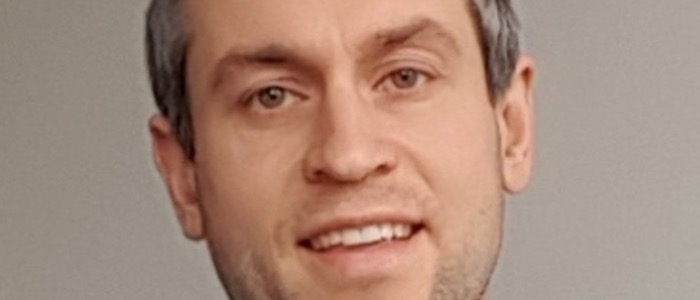Dmitry Fedosov

Theoretical Physics of Living Matter
Institute of Biological Information Processing and Institute for Advanced Simulation
Forschungszentrum Jülich
52425 Jülich
Germany
Dmitry Fedosov
...received his Bachelor’s degree in mathematics from Novosibirsk State University, Novosibirsk, Russia in 2002. After earning a MS degree in aerospace engineering from the Pennsylvania State University in 2004, he moved to Brown University, where he pursued a PhD degree in applied mathematics. Dmitry received a MS degree in applied mathematics in 2007 and his PhD in 2010. His thesis work was on multiscale modelling of blood flow and soft matter with the focus on modelling polymers and blood cells. His thesis work was recognised with the David Gottlieb Memorial Award for excellence in graduate study by the Brown University’s Division of Applied Mathematics and with the 2011 Nicholas Metropolis Award for outstanding doctoral thesis work in computational physics from the American Physical Society.
After completing his PhD, Dmitry moved to Forschungszentrum Juelich, Germany for a postdoctoral position in the theoretical soft matter and biophysics group led by Gerhard Gompper. In 2012, Dmitry was awarded the Sofja Kovalevskaja Award from the Humboldt foundation to build up an independent research group at the Institute of Complex Systems, Forschungszentrum Juelich, Germany. In 2016, he obtained a Habilitation in Theoretical Physics from the Faculty of Mathematics and Natural Sciences, University of Cologne, Germany. Dmitry continues to work as a group leader at the Institute of Biological Information Processing, Forschungszentrum Juelich with a research focus on non-equilibrium physics, including various complex systems in biophysics, and soft and active matter.
Research synopsis
We investigate the behaviour of complex biological systems and fluids, including blood and suspensions of soft and active particles. Such systems are generally out of equilibrium and exhibit incredibly complex structures, interactions, and dynamics. In particular, we are interested in the behaviour of active systems, blood flow in health and disease (e.g., malaria), cell mechanics and adhesion, microfluidics, and the rheological properties of cellular and polymeric suspensions. Our research interests also include multiscale modelling and hybrid algorithms that bridge atomistic, mesoscopic, and continuum scales. We employ various numerical methods, computer simulations, and analytical theory to study the behaviour of different complex biological systems and fluids. This research is Project 6 of the SPP 2332 PoP.






